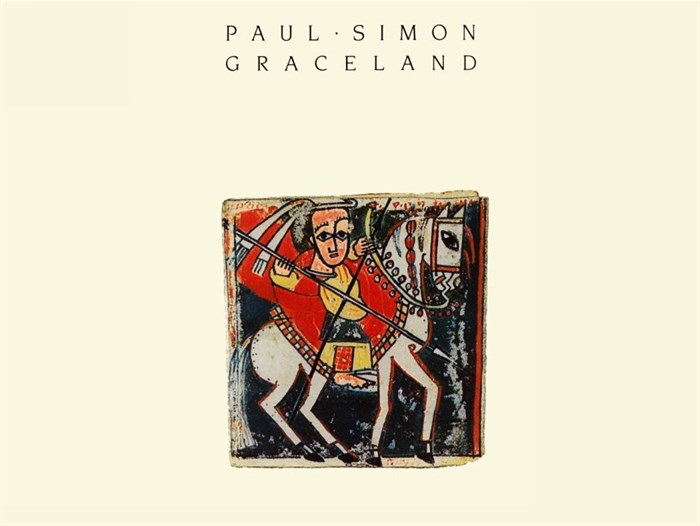It was a chilly evening, and I remember my dad making curry - one of my favourites. I was about six years old, still discovering the joys of cooking and music as a small moment to keep.

The cover art of Graceland
“Do you like this?” he asked me. My little head nodded; I was enjoying the discovery of mbaqanga. “Listen to this one, I think you’ll like it”. Diamonds on the Soles of Her Shoes started playing, we started dancing, and he pointed at my little slippers, singing along with a slight smile on his face.
Paul Simon found his acclaim as part of the duo, Simon & Garfunkel. I’m sure most of us know this name, especially with Bridge Over Troubled Water hitting the right spot for so many fans.
However, Simon’s solo career defined him as an explorer of music. Since 1972, his music saw the incorporation and influence of blues, doo-wop, gospel, jazz, reggae, salsa, South American folk, and minimalism. Truly, there was nothing that could help you pin down what kind of music he would make next.
Then he decided to travel to South Africa and discover the magic of mbaqanga, a kind of South African music with Zulu roots - and along with it, of course, the politics of the time.
The controversy
Graceland is special to me as a listener, because it cannot be classified as a Westernised version of deeply African music. The album’s songs, from the title track to Homeless, are a dedication to the rich culture that emanates from African music.
However, the album didn’t come without controversy. It was the 80s, there was a cultural boycott against South Africa because of the Apartheid regime, and Simon seemingly ignored everybody to go out and create something he wanted.
According to a report by The Guardian, Simon’s ideal was that he wanted to bring South African music to the world. He had global acclaim as a respected musician, so he was definitely under no illusions that he was capable of such a feat and actually bring value to the idea.
The controversy was that his idea would actually harm people more than help them. The idea of another ‘white saviour’ coming in to help the oppressed cultures of the world, and specifically South Africa, didn’t sit right with a lot of people.
The Guardian report continued to state that Simon wanted to “be on the side of musicians”, and that musicians find themselves suffering significantly under the rule of such a regime.
So, even though Graceland doesn’t have an inherently political stance in terms of the music, it definitely has a political element to it that we cannot ignore. At the end of day, though, it definitely finds a way to celebrate the Black musician. And that’s the positivity we can take away from it.
Perhaps Simon could have found a better way to go about his ideal. Collaboration is so important with these issues - and the controversy could have ended before it even became apparent.
The politics of the situation cannot, however, take away from how accomplished and daring the album is. Simon remains a significant musician, and he started an important conversation that is still powerfully relevant today.
And beyond that, the undeniable comfort you can find in the celebration of our heritage.





































